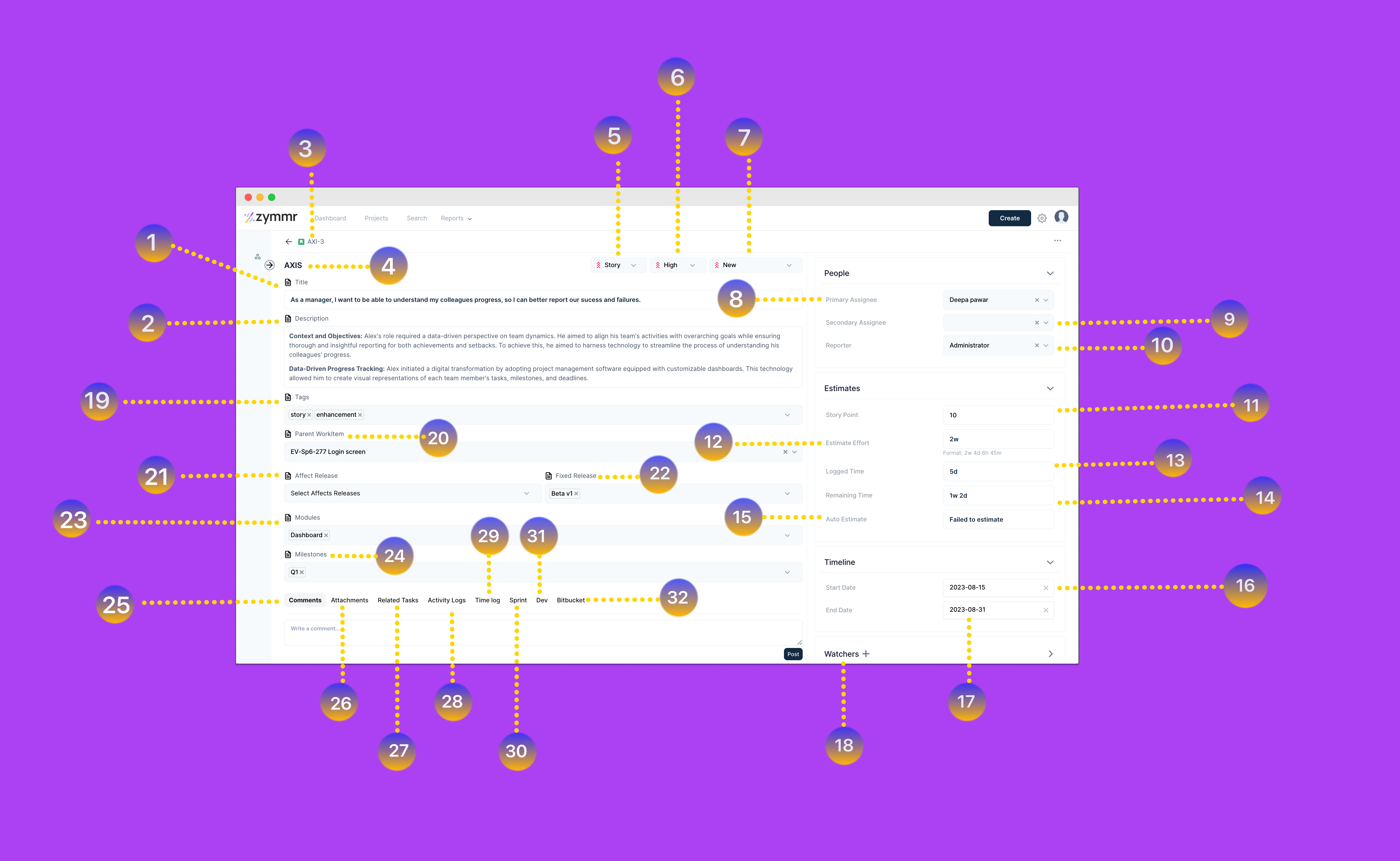WorkItem in Zymmr: A Comprehensive Guide

WorkItem is a fundamental unit within Zymmr's project management and tracking capabilities, representing tasks, bug reports, user stories, or any trackable item. It serves as the core component for planning, tracking, collaboration, and reporting throughout the project lifecycle.
Key Attributes of WorkItem
-
Title: A concise label for the WorkItem that succinctly conveys its purpose.
-
Description: A detailed narrative outlining the scope, objectives, and requirements of the WorkItem.
-
WorkItem Key: A unique identifier assigned to each individual WorkItem.
-
Project Name: A unique and descriptive title for the specific project.
-
WorkItem Type: Categorization or classification of a work item, such as tasks, bugs, or user stories.
-
WorkItem Priority: Relative importance or urgency assigned to a specific task within a project.
-
WorkItem Status: Current state or condition of a specific task, indicating whether it's complete, in progress, or facing challenges.
-
Primary Assignee: The person primarily responsible for completing a specific WorkItem.
-
Secondary Assignee: An individual providing additional support or assistance for a specific WorkItem.
-
Reporter: The person who raises or creates a WorkItem within Zymmr.
-
Story Points: A unit of measurement used in Agile methodologies to estimate the effort and complexity of tasks.
-
Estimate Effort: Expected amount of time required to complete a specific WorkItem.
-
Logged Time: Actual time spent working on a specific WorkItem.
-
Remaining Time: Time needed to complete a task based on the initial estimate and logged time.
-
Auto Estimate: Machine learning feature predicting and assigning estimated effort or time to WorkItem.
-
Start Date: Planned date when the task is scheduled to begin.
-
End Date: Planned date when the task is expected to complete.
-
Watchers: Individuals interested in staying updated about the progress and changes related to a specific issue.
-
Tags: Labels or keywords associated with WorkItems for categorization and organization.
-
Parent WorkItem: Higher-level task or issue that encompasses related sub-tasks or child issues.
-
Affects Versions: Indicates which versions or releases of a product are impacted by a specific issue.
-
Fix Version: Indicates in which version or release an issue has been resolved or fixed.
-
Modules: Labels or categories used to group and categorize WorkItems within a project.
-
Milestone: Significant event or achievement marking a specific point in a project's timeline.
-
Comments: Text-based messages or notes added to issues for communication and collaboration.
-
Attachments: Files, documents, or images associated with a specific WorkItem.
-
Related Task: Establishes relationships or connections between different WorkItems within a project.
-
Activity Log: Records all activities, changes, and events throughout the lifecycle of a WorkItem.
-
Time Log: Recording the time spent on specific WorkItems within a project.
-
Sprint: Represents the Agile concept of a fixed time period during which a team works on a set of tasks.
-
Dev Tab: Provides insights into the technical development and coding aspects of a WorkItem.
-
Bitbucket Integration: Seamless workflow for tracking and managing development activities, code changes, and project progress.